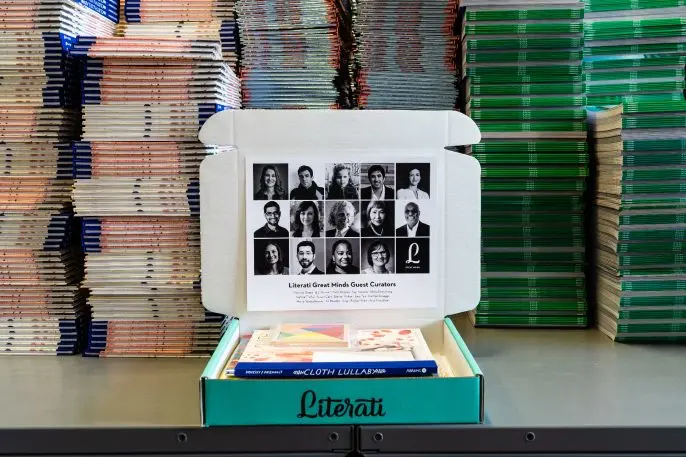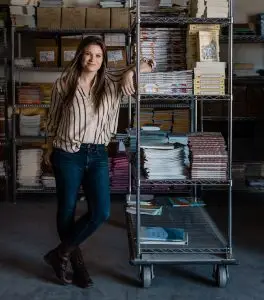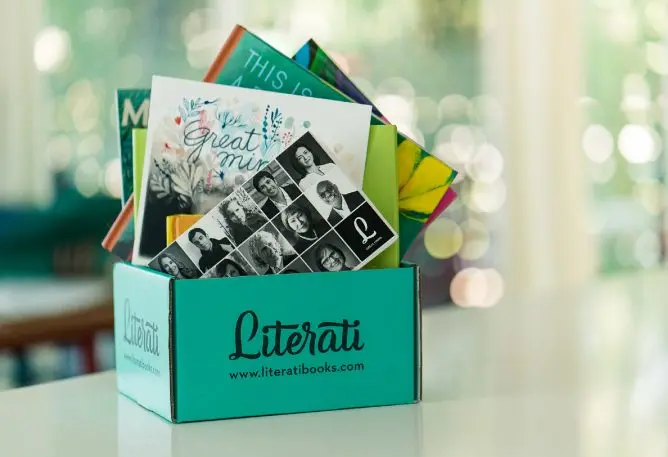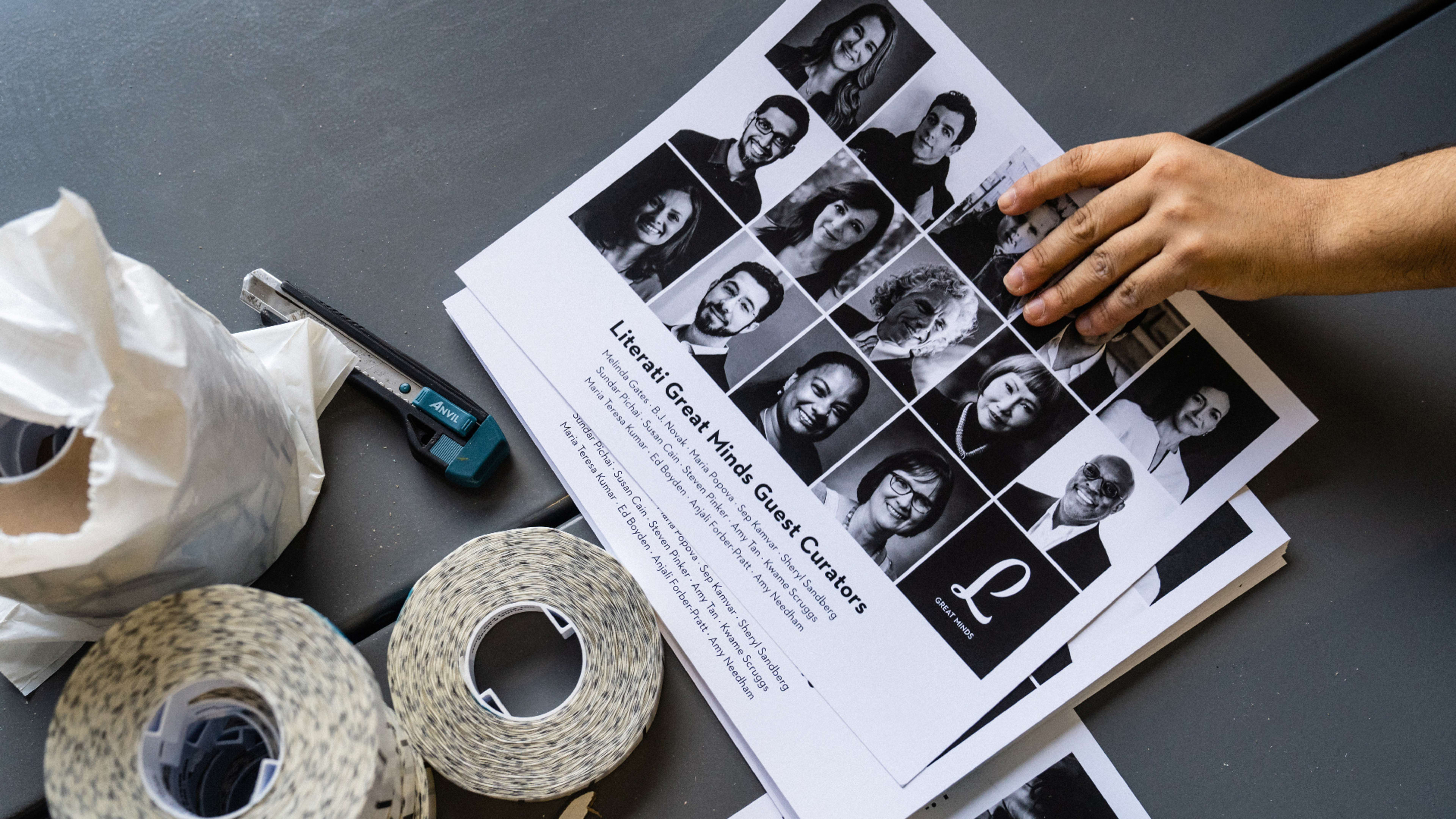There’s compelling data that children who grow up with parents reading to them perform better in school. But is it possible that a childhood passion for books can lay the foundation of a productive, successful–perhaps even, exceptional–life? Listening to Sheryl Sandberg, Melinda Gates, Sundar Pichai, Amy Tan, B.J. Novak, and other great minds of our time talk about how their love for reading began when they were toddlers seems to support this theory.
This week, the monthly kid’s book subscription called Literati releases a special box curated by these public figures, and others, including Paralympic champion Anjali Forber-Pratt, Harvard psychology professor Steven Pinker, and Brain Pickings founder Maria Popova. The books that they’ve chosen will be placed in this month’s box, organized by age and reading level. And the titles are diverse, ranging from classics like Madeline and The Little Prince, to recently published works like Rosie Revere, Engineer and Girls Who Code: The Friendship Code.


Ewing says she kept her brief fairly open: She asked these people to identify children’s books that inspired them. Some of them chose books from their own childhood, but others chose books that they had read to their own children–thereby passing on their love of reading to the next generation–or books that they had recently stumbled upon. But it’s possible to see a through-line between the books that they’ve chosen and their life’s work.
Sundar Pichai recommends
Take Sundar Pichai, Google’s CEO. Growing up in South India, Pichai showed an early interest in numbers and computers, and then went on to receive a scholarship to study engineering at Stanford. He picked a book called The Wild Robot, which is about a lovable robot called Roz who wakes up in the middle of an island and must use its ingenuity to find its way back to civilization. But on a deeper level, the book is about how technology intersects with nature, and how automation interacts with creativity. And this resonates with what Pichai does at Google, which involves ensuring that technology adapts and responds to the human needs of users.
B.J. Novak recommends
Comedian B.J. Novak, who is known for his roles on The Office and The Mindy Project, was influenced by humorous children’s books growing up. He includes Shel Silverstein’s book Uncle Shelby’s ABZ Book, which is a twist on an alphabet book but full of advice that no parent would actually share with a child. For instance, D is for Daddy encourages kids to give their father’s hair a trim while he sleeps to save him the cost of going to a barber. E is for Eggs recommends that you throw them on the ceiling. “My dad showed it to me with a very clear conspiratorial explanation that kids were not supposed to read this,” Novak explains. “And that, of course, took my enjoyment of the book’s comedy and my pride at getting the joke to a whole other level.”

Steven Pinker recommends
Steven Pinker is an experimental psychologist and linguist who has also published 10 books of his own, including his most recent Enlightenment Now: The Case for Reason, Science, Humanism, and Progress. He picked a little known Dr. Seuss story called The 500 Hats of Bartholomew Cubbins. The book is about a little peasant boy who tries to take off his hat for a pompous king, only to find even more extravagant hats appearing on his head, out of nowhere. On the surface, the book seems like good fun for kids, but it is really about the themes of power and its abuse. “It’s this whole parable about power and tyranny, and circumventing it with humor,” says Ewing. “This was an example of how this project led to some delightful surprises and fun moments along the way.”
Amy Tan and Maria Popova recommend
Authors Amy Tan (best known for her novel The Joy Luck Club) and Maria Popova (known for her blog Brain Pickings) happen to be obsessed with The Little Prince, which they both continue to read regularly. Popova, for her part, rereads the book every single year. For Tan, the book has different messages throughout our various stages of life. “The Little Prince grows up with us,” Tan says. “He is the fairy tale guide to magical lands with talking animals that opens a child to wonder. He is the fable for teens seeking to cast off rules and become individuals. He helps us as adults to meditate on what we think we know and why we should refresh our minds and wonder anew.”
Melinda Gates and Sheryl Sandberg recommend
Melinda Gates and Sheryl Sandberg both included books on the list that inspire young girls to think of themselves as engineers and scientists. Gates, who is ranked No. 3 in Forbes’s list of most powerful women in the world, has devoted her work at the Gates Foundation to women’s and girls’ rights, gender equity, and championing women in technology. So it’s no surprise that she recommends the 2013 book Rosie Revere, Engineer. The book focuses on how Rosie experiences failure early in life, but thanks to the encouragement of her great-great aunt Rose, decides to learn how to fly. The book is designed to give girls as young as 5 insight into the lives of women who excelled at science.
Sandberg’s suggestion is along the same lines. She picked a book from the Girls Who Code series that focuses on friendship. The book cleverly weaves together a story about friendship with actual snippets of code. The story focuses on Lucy, a girl who needs to build an app to help her uncle. And the story illustrates the first concepts in computer science. Sandberg has spent her career advocating for women in business, and particularly those in tech. Books like this go a long way to helping more girls grow up to become founders of companies like Facebook.
Recognize your brand’s excellence by applying to this year’s Brands That Matter Awards before the early-rate deadline, May 3.
